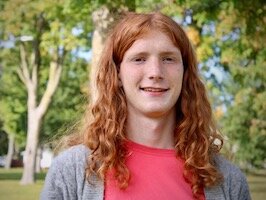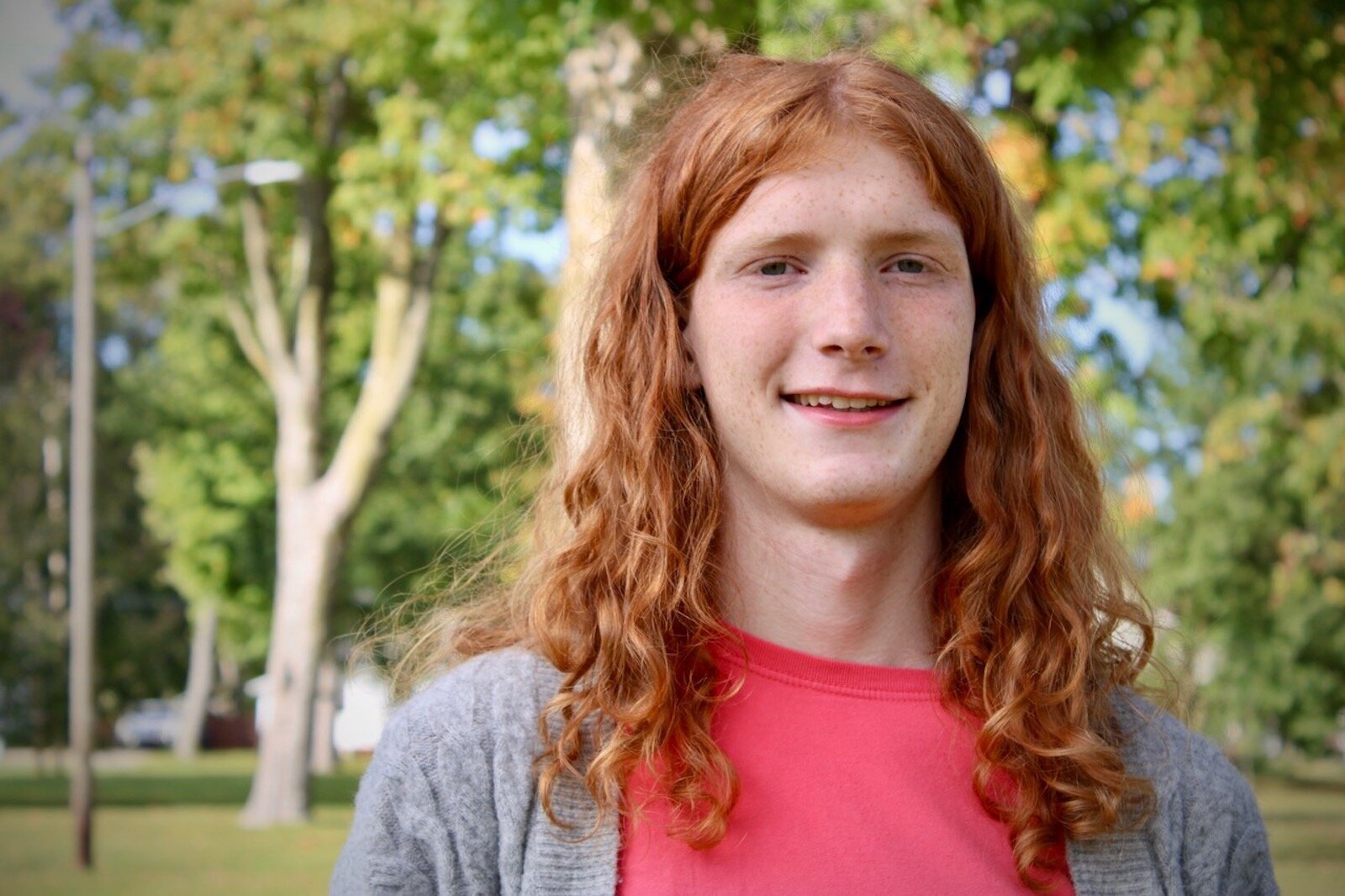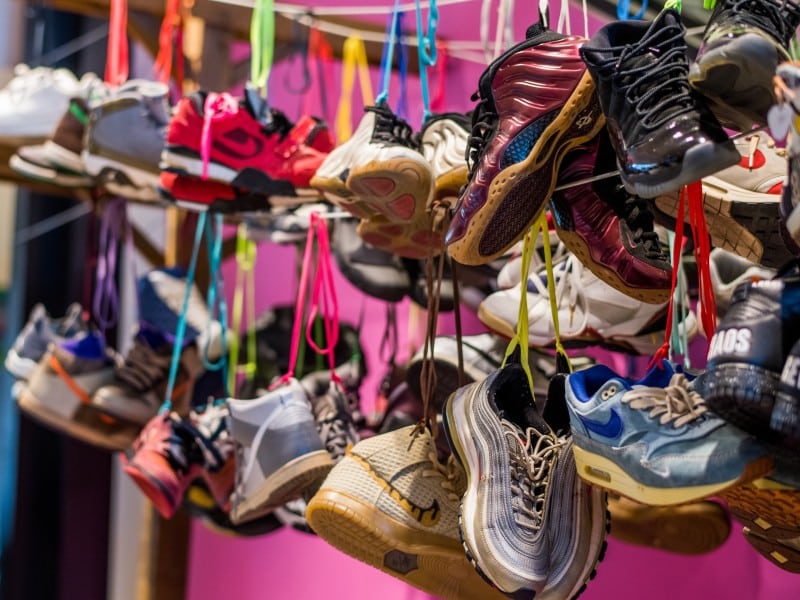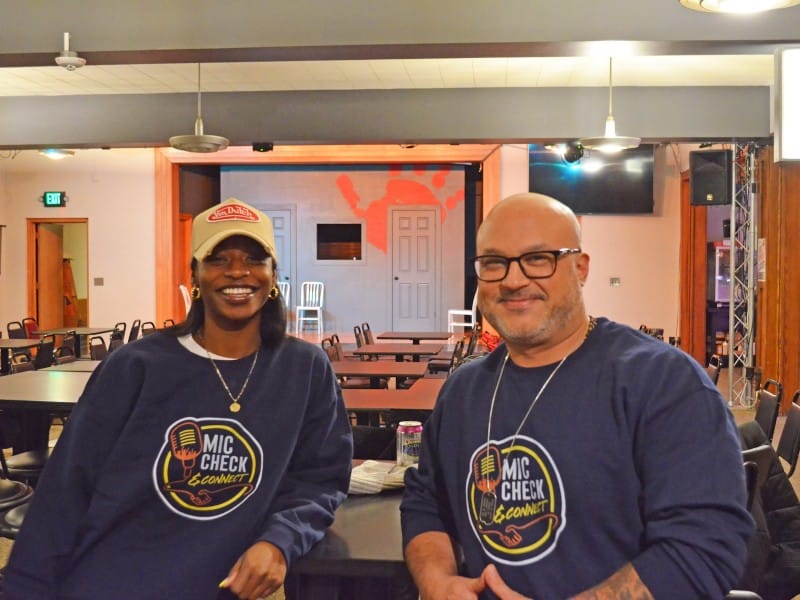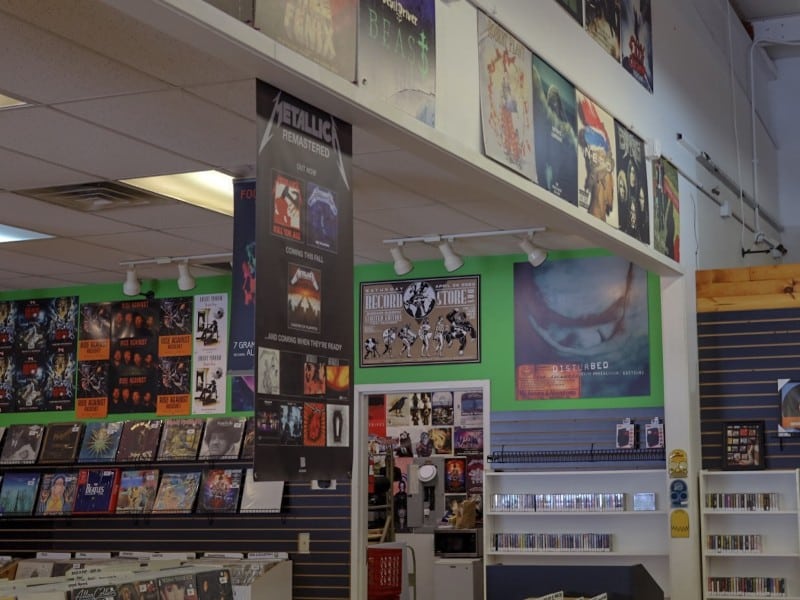THREE RIVERS, MI – “I knew,” Lia Smallcombe says. “I knew back when I was just a small child.”
Smallcombe is a 16-year-old senior at the Three Rivers High School. She is a transgender female, assigned male at birth.
What does one do when their outside doesn’t quite match their inside? One of the most common misperceptions about transgender people is that they don’t identify as transgender until sometime later in life, at very least not before puberty, but are somehow “groomed” into being something they are not.
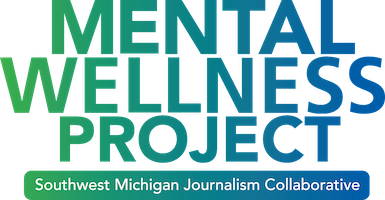
“I was very small when I remember going to my mom and asking her—what if I was born in the wrong body?” Smallcombe says.
“Getting support from your parents is the biggest thing,” Smallcombe says. “There’s only so much you can do without the help and support of your parents. When you don’t have that, that’s the leading cause of suicide among my age group of trans youth. There’s the risk of homelessness, too, because some lose their homes when they come out.”
Smallcombe is one of the many LGBTQ (lesbian, gay, bisexual, transgender and questioning or queer) youth in southwest Michigan who have sought support for their sexual orientation and gender identity. The local resources are growing for LGBTQ youth, but the progress has been slow.
In a 2022 survey by the Trevor Project in Michigan, 76% of LGBTQ youth reported experiencing symptoms of anxiety; 59% reported experiencing depression; 45% of LGBTQ and 52% of transgender and nonbinary youth seriously considered suicide, and 15% actually attempted suicide.
Three out of five youth who were seeking mental health care in Michigan were not able to find it, according to the survey.
The Trevor Project is a leading national suicide prevention organization for LGBTQ youth. The organization has been taking annual surveys of LGBTQ youth since 2019, surveying nearly 34,000 youth of ages 13 to 24 across the country and separating responses by individual states.
“Progress happens slowly, especially in smaller, rural communities,” says Andrew George, president of the newly-formed Three Rivers Pride.
“Change happens in our minds before it happens in organizations. It takes just a few strong voices to spark progress,” George says. “We started Three Rivers Pride about a year ago, and our only agenda was to bring about love and acceptance.
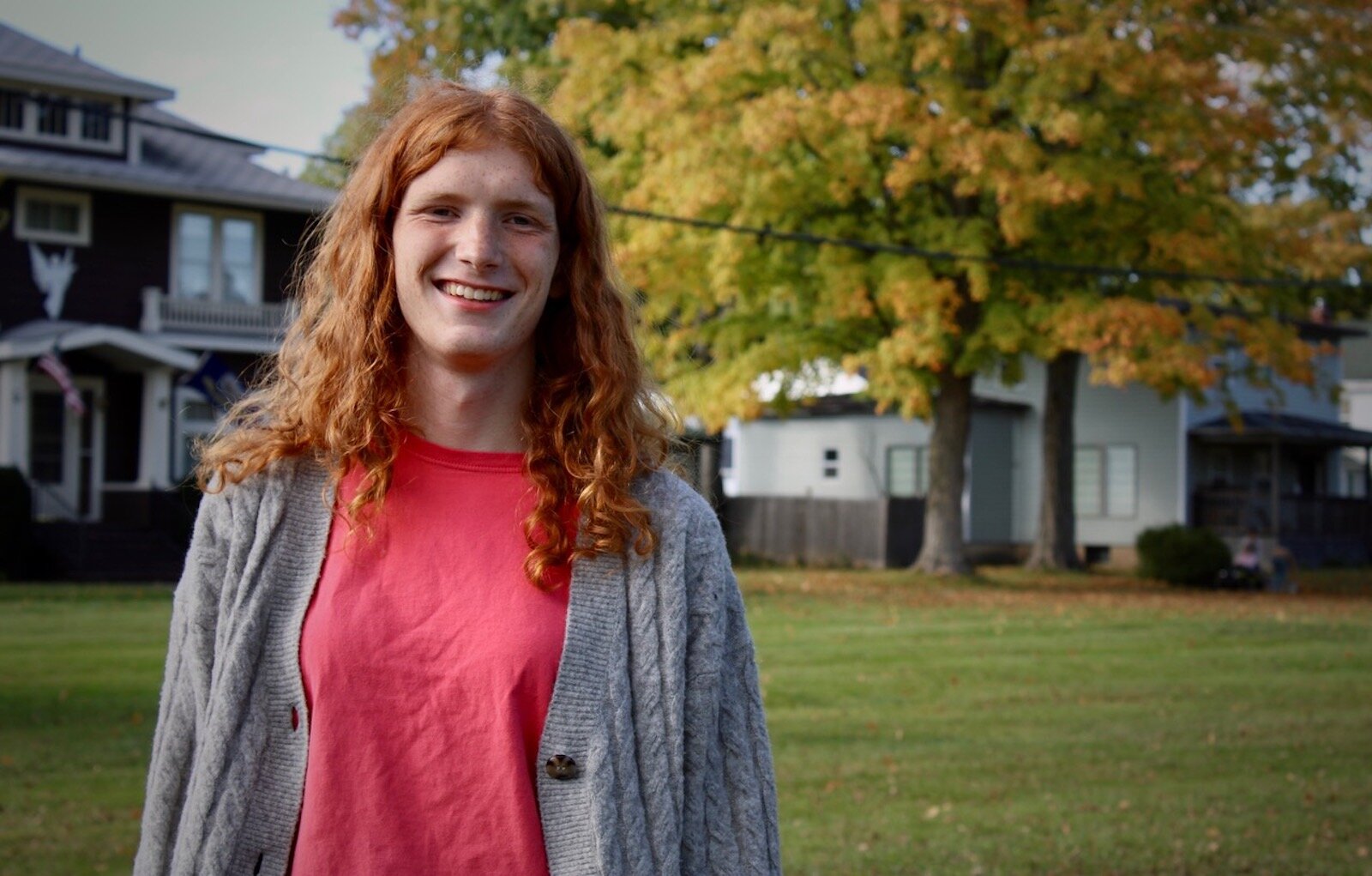
“Much to our delight, the majority of our community was ready to support us. Conservative voices are few, but they can sometimes be the loudest. For our first Pride Festival in June 2023, about 3,000 people attended and we saw only one protester. And we raised a tremendous amount of donations.”
George admitted it’s not always a smooth ride. Three Rivers, he says, still has a long way to go to provide the resources the LGBTQ+ community needs.
The need for ‘safe spaces’
According to the Trevor Project’s most recent survey in 2023, fewer than 40% of LGBTQ youth found their home to be LGBTQ-affirming.
Just over 40% of LGBTQ youth seriously considered attempting suicide in the past year; young people who are transgender, nonbinary, and/or people of color reported even higher rates than their peers. A majority reported being verbally harassed at school. Nearly 1 in 3 LGBTQ young people said their mental health was poor most of the time or always due to anti-LGBTQ policies and legislation.
Dell Darnell echoed Smallcombe’s experience. Darnell is the program manager at OutFront Kalamazoo, a not-for-profit, charitable organization serving the lesbian, gay, bisexual, transgender, queer, asexual, intersex, 2 Spirit, and allied community in Southwest Michigan. Darnell identifies as non-binary and trans-masculine. They are also owner of Dapper Hammer, Michigan’s first trans-owned teaching woodshop.
“I knew sometime around my pre-K years,” Darnell says. “I grew up down South, in a very conservative family. I just didn’t have the language for it, not until middle school. Not knowing that early, however, does not invalidate those who don’t know until later in life.”
While gaining some understanding of how one identifies is the first step toward being authentic to oneself, what comes next for many LGBTQ+ youth is confusion, anxiety, depression, isolation, fear and discrimination.
That is why OutFront Kalamazoo came into existence, Darnell says. “There is a struggle to be accepted, as this community continues to be marginalized and oppressed. LGBTQ+ youth need community with other youth that can understand them. Kids need safe spaces.”
Community supports
OutFront offers a variety of programs and services.
For youth aged 12 to 18, a program called Connections provides a safe space for LGBTQ+ youth to meet and gain access to education, accurate information, and be connected to the resources they may need. Big Pride is for youth aged 6 to 16, and is in partnership with Big Brothers Big Sisters, pairing youth with appropriate mentors.
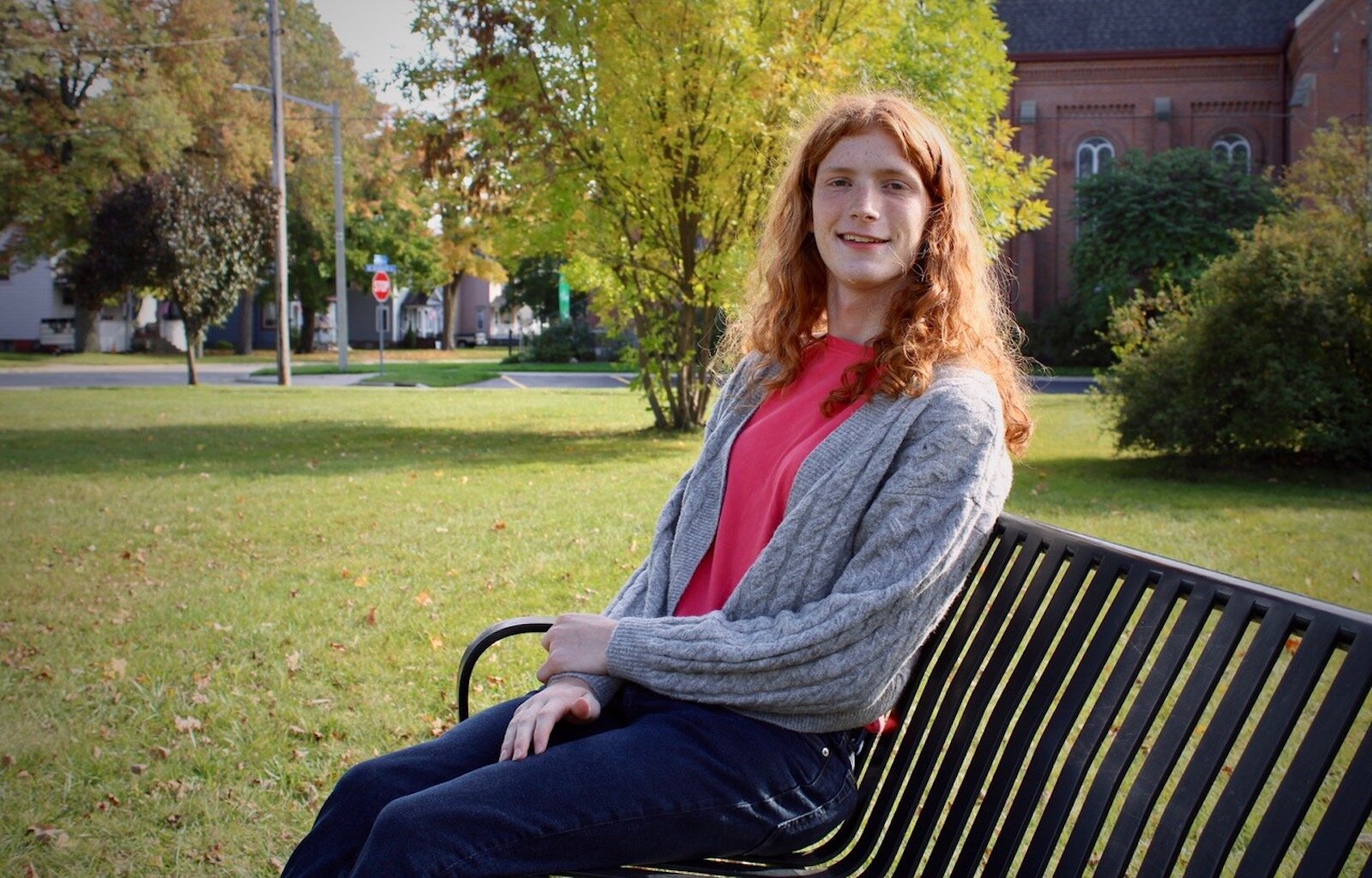
Host Homes are available for LGBTQ+ youth, ages 13 to 18, who are experiencing homelessness and need a safe place to stay, while Legacy House does the same for those aged 18 to 24.
OutFront also offers a wide range of social programs and alliances along with The Thomas H. Seiler LGBTQIA+ Resource Library, stocked with materials to promote knowledge and understanding.
“We also have a couple of new groups for parents of these young people,” Darnell says. “Proud Families is for parents and guardians of LBGTQ+ youth, and Transforming Parents are for parents with transgender children. All our groups meet in person along with a private Facebook component.”
Nathan Nguyen is the director at WMU’s Office of LBGT Student Services. Its services are open to both WMU students and the greater Kalamazoo-area community.
“Anyone can come in during the academic year,” Nguyen says. “We have bi-weekly discussion groups that are student-led, and we work with various campus partners. These aren’t counseling groups, but we can refer to counseling. We are here to support anyone who is still questioning, looking for a place where they will not be judged or who needs advice. We also provide training on how to be inclusive, how to make everyone feel welcome. WMU is the second oldest university in Michigan to have these kinds of services—we have been here since 1989, and we are tied for sixth in the nation.”
The LBGT Services at WMU has a library of materials for the LBGT community, offers Safe On Campus training for inclusivity, and collaborates with other university departments to provide safe housing, scholarships, and other resources. In a 2012 survey, approximately 700 WMU students identified with the LBGT community.
In downtown Kalamazoo, at the YWCA Kalamazoo, Spence Adams is the public health coordinator. The YWCA’s mission includes social justice and advocacy issues, and offers gender-affirming products and services, often at no cost. The YWCA collaborates with other organizations such as OutFront, Planned Parenthood, and OptiMed for prescriptions that include hormone replacement therapy.
“We work with OutFront and the Reproductive Health Fund to buy the gender-affirming products the LGBTQIA+ community needs,” Adams says. “We have packers, binders, padded bras, breast inserts, razors and shaving cream, deodorant, combs and brushes, tucking gaffs, packing boxers, period cups, and more. You can use the Comprehensive Reproductive Health Fund to get these items free of cost. Anyone who is a Kalamazoo County resident is eligible. Insurance, income level, citizenship, none of those matters. We also provide transportation for anyone needing health fund services.”
Another service the YWCA Kalamazoo offers, Adams says, is help and advocacy for gender name changes. It is a four-step process that begins with a petition, finger-printing for those older than 22, publishing a public petition, and finally a court date to gain legal approval for the change. Once that is achieved, the YWCA Kalamazoo helps with name changes on driver’s licenses and Social Security cards.
Online supports
For LBGTQ youth, online spaces support their mental health and well-being “through exploration of diverse sexual orientations and gender identities, peer connect and social support,” says a 2023 Trevor Project report.
“However, online spaces can pose harm to LGBTQ young people, such as higher risk of cyberbullying, compared to their non-LGBTQ peers,” the report says.
LBGTQ youth spend an average of about five hours online a day, a Trevor Project survey found. That’s about 45 minutes more than their non-LBGTQ peers.
Research has found that LBGTQ youth who found “safe spaces” online were 20% less likely to attempt suicide and 15% less likely to experience recent anxiety compared to LBGTQ youth who did not feel safe online.
The most common “safe spaces” used by LBGTQ youth were Tik Tok and Instagram, the report says.
But the online community also has its downsides.
Dell, of OutFront Kalamazoo, says their agency offers Discord, a private service where LGBTQ+ youth can find safe, private social connections online, monitored by OutFront staff and volunteers.
At one point, Dell says, OutFront was getting harassment on TikTok from conservatives, to the point where it generated reams of hate mail and phone calls. Dell says that volunteers and allies helped the organization get through it by answering the phones, bringing in lunch, and supporting support.
Eventually, the hate group that targeted OutFront stopped with the harassment.
Lia Smallcombe says that she has gone online for information, but it hasn’t always been reliable. But nothing replaces face-to-face support, she says, and she is on a waiting list for gender-affirming therapist.
Living her truth
“When my parents asked me—how do you know? I didn’t at first know how to answer,” Lia Smallcombe says. “But they always told me that I could talk to them about anything.”
Hormone replacement therapy and surgery are allowed for minors in Michigan with the consent of a parent or guardian. It can be difficult to find a physician to prescribe and do the surgery. Sometimes, a letter from a mental health professional is also required.
“I did feel slightly embarrassed when I came out to people around me—that was just last year—but my two sisters and brother were mostly okay with it, and so were kids at school,” Smallcombe says. “Still, I would recommend therapy for anyone going through this, and that’s something that we don’t have here in Three Rivers. I’m on a waiting list now for a therapist through the LGBT Services at Western Michigan University in Kalamazoo.”
Smallcombe is also working on her voice. Her music and choir teacher at high school is helping her to learn how to use her voice properly and without damage. “My advice to others like me is that if you are worried that you are faking it, faking who you really are,” she says, “then you probably aren’t.”
Even with obstacles along the way, she says, the journey to be authentic to who you really are is essential. Help is available if one is willing to reach out.
This article is part of The Science and Art of Well-being: Innovations and best practices in mental health care, a solutions-focused reporting series of Southwest Michigan Journalism Collaborative. The collaborative, a group of 12 regional organizations dedicated to strengthening local journalism and reporting on successful responses to social problems, launched its Mental Wellness Project in 2022 to cover mental health issues in southwest Michigan.

